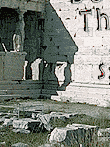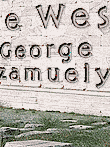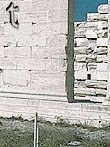However,
the Montenegro ploy will be difficult to pull off. In the
first place, Montenegrins are not Albanians. It is very
dubious that there is any such thing as a Montenegrin national
identity. Up until quite recently, Montenegrins – unlike,
say, Albanians or Croats – regarded themselves as Serbs.
Moreover, as the recent municipal elections demonstrated,
a substantial portion of the population wants to maintain
its connection with Serbia. This poses a dilemma for Djukanovic
and the Clinton Administration. A referendum on independence
might go against Djukanovic. This would be extremely embarrassing
for NATO. And even if a majority voted to secede, it is
unlikely that it would be a decisive one. To go ahead and
seek independence on such a basis would almost certainly
lead to civil war in Montenegro. To intervene in such a
war in the name of humanitarianism may be hard to pull off.
The United States would certainly do it. So would our favorite
yapping poodle, Great Britain. But no other European power
would join in. In such circumstances, the United States
has decided that Djukanovic’s best option for the moment
is to sit tight, and to try to emerge as Yugoslavia’s only
alternative to Milosevic. Instead of secession, Djukanovic
should start thinking about being leader of Yugoslavia as
a whole. The Clinton Administration has become exasperated
with the antics of its favored Serb alternatives –
Zoran Djindjic and Vuk Draskovic. The American disdain for
Balkan politicians in general and the Yugoslav opposition
in particular was beautifully captured in a recent AP story:
"Albright unleashed the attack on Milosevic at a conference
in Berlin during which she and German Foreign Minister Joschka
Fischer received Serbia’s Democratic Party leader Zoran
Djindjic and representatives of the country’s Balkans neighbors."
Like emperors they "receive" beseeching supplicants
and grant royal favors according to whim.
The
wily Milosevic, realizing what NATO was up to, decided to
call our bluff. He downgraded the status of Montenegro within
the federation. Last week, Yugoslavia’s federal parliament
amended the country’s constitution so as to create a directly
elected President as well as a directly elected parliamentary
upper chamber. Djukanovic was beside himself with rage.
He immediately announced that Montenegro would boycott the
upcoming federal and presidential elections. But this was
hardly chilling news. Even before the Constitutional changes,
he had indicated that he would not take part in the elections.
This was a course being urged on him by the US Government.
It is customary US practice that whenever our candidate
seems to be heading for defeat, Washington orders him to
pull out and claim "fraud." In any case, it does
not matter whether Djukanovic boycotts the election or not,
the vote will still take place and Milosevic’s supporters
in Montenegro will be elected to the federal parliament.
Djukanovic is obviously distressed. He has now taken to
urging NATO military intervention on his behalf. Or as a
UPI story helpfully puts it, "The case of Montenegro
clearly poses a dilemma for the West. While Djukanovic is
no angel…he is also the closest thing to a Western democratic
leader in the Balkans….If the West were to turn its back
on Mr. Djukanovic now, it may seriously damage its credibility
in the region." "The international community will
react in time and will not wait for war to break out before
it reacts," he said the other day. His call is being
echoed by NATO’s slimiest toady, Czech President Vaclav
Havel. He demands that NATO stage a show of force to intimidate
Milosevic. "Apart from political options, there are
alternatives, which consist of a demonstration of force,"
Havel declared recently, "The international community
looked on events (in former Yugoslavia) with surprise and
abhorrence and reacted too late. It should not be repeated
a fifth time." Havel’s obnoxiousness is hard to equal.
He not only supported the bombing of a fellow-Slavic country,
a country, moreover, that had historically had enjoyed good
relations with the former Czechoslovakia. He also shows
his disdain for the views of his countrymen, who were overwhelmingly
opposed to NATO’s campaign.
Much
of this policy is worked out not by the likes of the hideous
harridan of Foggy Bottom or the self-important windbags
at the Qui d’Orsay. Policy towards the Balkans is developed
by the so-called "non-governmental organizations" – the
NGOs. In this bizarre American empire we inhabit, US-funded
agencies like the International Criminal Tribunal for the
former Yugoslavia are described as "independent"
courts of law. And NGOs that are financed by the governments
that have a direct interest in the outcome of various conflicts
that they purport to study and policy recommendations on
are invariably described in the media as "independent."
Case in point: the International Crisis Group, financed
in large part by George Soros. So "independent"
is it that on its board sit Louise Arbour, former chief
prosecutor at the ICTY, as well as former NATO Supreme Commander
Wesley Clark, demented leader of last year’s bombing mission.
Chairman of the ICG Board is former Finnish President Martti
Ahtisaar, the man who forced NATO’s demands down Serbian
throats to end the bombing last year. There is a cozy relationship
between the NATO governments and the NGOs. The NGOs supposedly
provide disinterested analysis and profess exclusively humanitarian
concerns. The Governments listen to the NGOs and dutifully
follow their recommendations. The only problem is that it
is the Governments that underwrite the operations of the
NGOs
The
International Crisis Group describes itself as "a private,
multinational organization committed to strengthening the
capacity of the international community to anticipate, understand
and act to prevent and contain conflict." Then we learn
that the Group "works closely with governments and
the press to highlight key issues identified in the field
and to generate support for its policy prescriptions."
Among the governments that fund the ICG are those of Australia,
Austria, Belgium, Canada, Denmark, Finland, France, Ireland,
Japan, Luxembourg, the Netherlands, Norway, the Republic
of China (Taiwan), Sweden, Switzerland, the United Kingdom
and the United States. Private sector donors, we learn,
include the US Institute of Peace. Now when did the US Institute
of Peace get to be in the "private sector"? The
Institute gets its money from the US Government. Among the
Foundations listed as contributors is the National Endowment
for Democracy – yet another agency funded by the US Government.
Talk about triple-dipping.
It
turns out that the description "anticipate, understand
and act to prevent and contain conflict" means not
the prevention, but the exacerbation of conflict. In a recent
article in the Washington Post, Anna Husarska, described
as a "senior political analyst at the International
Crisis Group," proclaimed proudly: "Montenegro’s
collaboration with the international community goes very
far indeed." Why, only the other day, Djukanovic entertained
Carla del Ponte, the ICTY’s chief prosecutor, in Montenegro.
Del Ponte "came to Yugoslav soil to hear that a Yugoslav
republic is ready to collaborate with the Hague Tribunal,
a collaboration that may at some point mean having to allow
the snatching of Milosevic." The "snatching of
Milosevic"! Here is this "senior political analyst"
cheerfully talking about flagrant violations of international
law, the commission of terrorist or warlike acts. But Husarska
was not done yet. She expressed outrage that, unlike Wesley
Clark, who "frequently expressed his concern for stability
in Montenegro," the new NATO supreme commander General
Joseph Ralston "has been silent on this subject –
almost as if Montenegro has fallen off the maps at the Pentagon."
The notion of "mad bomber" Clark worrying about
"stability" boggles the mind. But it gives one
an idea of what the ICG means by "conflict prevention."











